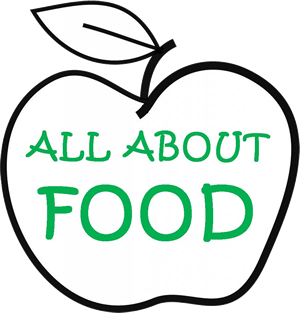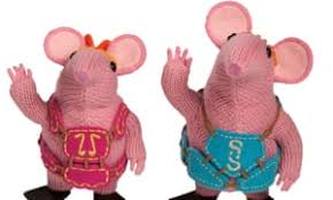The RSA Food, Farming and Countryside Commission asked us to imagine a future where…
We have halted climate breakdown and reversed biodiversity loss; we have asserted the grace and dignity of human life – everyone matters, everywhere. Our cities are cleaner and healthier. Our towns flourishing and vibrant. Everyone can find a home they can afford in the places they want to live. Walking, cycling, clean public transport and electric vehicles are commonplace. Greenroutes link neighbourhoods in towns and cities.
It’s easy to get out to the countryside, with interconnected public transport hubs from towns and cities. People visit the National Forests, which have brought the UK nearer to the top of the European league table for reforestation, helped largely by the National Nature Service’s huge planting effort of the 2020s. Every farm and landholding has wild spaces, and all wild spaces are planned to make up a connected network of species-rich wildlife corridors. Careful planning of forestry and ground cover has minimised flooding and soil erosion downstream.
Arable farms now grow most of their crops for people, planting a much wider range of varieties. Farming is largely chemical free. Precision technologies are readily available, so smaller fields and layered cropping are popular. Investment in quick-win, farmer-led technologies and innovations have brought advances direct to farmers. Older crop varieties are making a comeback, with better genetic resilience and a proven ability to grow in different soils.
With a livestock rotation on pasture and no-till practices, soil quality has improved, along with stream and river quality. Livestock is fed on pasture or leftovers. Chickens thrive in agroforestry systems; outdoor pigs consume the little waste that’s left in the food system. Since we eat much less, but better quality meat, old British breeds have recovered, well adapted to the UK climate and conditions. Carefully using the whole animal has seen the revival of the wool trade, as a healthy and sustainable fibre for a circular economy.
With fewer grazing animals, tracts of land have started to regenerate. But the native breeds and the hill farmers continue to cherish the landscapes they have inherited and will pass on to future generations, and which are so important to locals and visitors alike. More farmers sell directly to local buyers; co-ops are thriving, helping small producers enter the market. Public procurement led the transition, providing fair and secure markets for producers and encouraging investment in fruit, vegetables, nuts and pulses. The first big harvests of UK nuts and fruits have started. Mixed farms have become the norm.
Everyone can afford healthy food and can grow it themselves if they want to, in the public gardens that you find in every spare space. The community kitchens and street food that provide healthy, nutritious food at every price point, create convivial and friendly places to eat and connect. Everyone can learn how to grow, prepare and cook nourishing food. With food at its heart, meeting, eating and talking together is reshaping our public discourse – it has become vibrant, convivial, lively and appreciative. What we eat has changed – as well as calories, we think about nutrients and carbon footprint too. We value our food and we don’t waste it. We are much healthier – the trends in diet related illnesses have reversed.
A universal basic income means people focus on doing the work that’s needed, that sustains the planet, our communities, and the human spirit. A 30-hour week means that good work is shared more equitably; flexible, fair and equal work is everywhere. Ecosystem care, and the skills it needs, is central to every part of the curriculum.
Instead of relentlessly speeding up, we’ve found ways to slow down too – slow food, slow travel, slow living. Now people can, if they choose, take time to create and enjoy the things that really matter to them – rich relationships, healthy and nourishing lives, the beauty around us, nurturing our communities and our planet. Fast or slow, we decide together the kinds of technologies that enhance the human condition; and we place limits on those that exploit or damage the planet or people’s wellbeing.
The rural economy is booming: leisure and tourism has increased, people decide to spend more time in places they can reach easily without flying and driving; the countryside is a place for psychological, cultural and spiritual renewal and celebration; natural ecosystems like forests, peatlands and grasslands are being restored; a working countryside grows more healthy food in agroecological systems, which values people’s work at least as much as the high-tech solutions. A place where everyone can live and work, and benefit from the same essential services available to people in cities. Ultrafast broadband opened the countryside to new businesses, made virtual teamworking easy, and wiped out the need for unnecessary commuting. People meet when and where they want to.
Clever and visionary investments kickstarted the 4th agricultural revolution. A National Agroecology Development Bank provides secure finance to help farming businesses invest in the transition and to divest from old assets. Companies around the world focus their work on business that enhances the health of people and planet and pay their share of the investment in this. If they don’t, they can no longer expect to thrive. Circular economy and ‘net positive’ principles are embedded in global supply chains. Taxes on polluters, and other value depleting products and practices, boosted revenues available to restore the health of people and the planet.
Our trading relationships around the world raise the bar for human flourishing, and carefully steward the planet’s resources for future generations. Trading that depletes public value for private greed is exposed and regulated through trade rules that focus on sustaining the planet.
We produce less stuff, we consume less stuff, we carefully reuse and recycle; we focus our collective ingenuity on the health and wellbeing of the planet and of all the life on it, reducing inequalities around the world.







Recent Comments